What Is a Marketing Plan and Why Do You Need One?
A marketing plan is a structured document that outlines your business’s marketing objectives and the strategies you’ll use to achieve them. It defines your target audience, sets clear goals, and ensures your team is aligned on campaigns, channels, and budgets.
Without a marketing plan, businesses risk wasting time and money on random activities that don’t generate returns. A clear plan gives direction, improves ROI, and helps you stay competitive. It’s the GPS for your brand’s growth journey.
How Do You Align Your Marketing Plan with Your Business Goals?
Start by understanding your business’s short-term and long-term objectives:
- Do you want to increase brand awareness?
- Are you targeting sales growth in a specific region?
- Is customer retention a key concern?
Once your business goals are defined, align your marketing activities with them. For example, if you’re launching a new product in Egypt, your marketing plan should focus on targeted awareness campaigns through channels popular in that market, such as Instagram and TikTok.
What’s the Right Way to Research Your Market and Competitors?
Market research isn’t optional. It’s how you understand customer needs, identify gaps in the market, and monitor your competitors’ strengths and weaknesses.
- Use Google Trends to explore topic interest.
- Use some tools to analyze competitor keywords.
- Conduct surveys or social listening to gather real audience insights.
Competitor analysis helps you avoid their mistakes and capitalize on areas they overlook.
Who Is Your Target Audience and How Do You Find Them?
Defining your audience is crucial. You need to know who you’re talking to so you can create relevant and engaging content.
Ask:
- What age group am I targeting?
- What are their pain points?
- What platforms do they use most?
Then, build buyer personas: fictional profiles based on real data. Include demographic info, behaviors, motivations, and goals. The more detailed, the better.
What Are SMART Goals and How Do You Set Them in Marketing?
SMART goals provide structure. Here’s what it means:
- Specific: Clear objective (e.g., grow Instagram followers).
- Measurable: Attach numbers (e.g., by 30%).
- Achievable: Based on current capacity.
- Relevant: Aligns with business goals.
- Time-bound: Add a deadline (e.g., in 3 months).
Examples:
- Increase website traffic by 20% in Q2.
- Generate 100 new email subscribers each month.
Which Marketing Strategies Should You Focus on in 2025?
Your strategy depends on your audience and goals. Here are core strategies that work in 2025:
- Content Marketing: Blogs, videos, infographics.
- SEO: Boost your ranking organically.
- Social Media: Instagram Reels, TikToks, Facebook Ads.
- Influencer Collaborations: Especially in Egypt and the Gulf region.
- Email Campaigns: Nurture leads and drive action.
- Paid Ads (PPC): Google Ads, Meta, TikTok.
Mix and match these based on your budget and what your audience responds to most.
How Should You Allocate Your Marketing Budget Wisely?
Your budget isn’t just a number—it’s a decision-making tool.
Typical allocation (for a B2C digital-first brand):
- 30% on paid ads
- 25% on content creation
- 20% on influencers
- 15% on tools/subscriptions
- 10% on PR or experimental channels
Always track ROI from each channel and be ready to reallocate if something underperforms.
️ How Do You Build a Monthly or Quarterly Marketing Calendar?
A marketing calendar helps you organize and stay consistent.
- Use tools like Notion, Google Calendar, or Trello.
- Plan around:
- Product launches
- Local holidays
- Awareness days (e.g., Earth Day, Mother’s Day)
- Seasonal campaigns
Each post or campaign should include the objective, target audience, platform, format (e.g., Reel, carousel, blog), and CTA.
What Metrics Should You Track to Measure Success?
If you’re not measuring, you’re guessing.
Key metrics include:
- Website traffic and bounce rate
- Lead generation and conversion rate
- Cost per acquisition (CPA)
- Return on ad spend (ROAS)
- Email open and click rates
- Social media engagement and reach
Use Google Analytics 4, Meta Business Suite, Hotjar, and CRM dashboards to stay informed.
How Often Should You Review and Adjust Your Marketing Plan?
Marketing is dynamic. Your plan should never be static.
Set review checkpoints:
- Weekly: Check ad performance
- Monthly: Review KPIs
- Quarterly: Audit overall strategy
Ask:
- Are we hitting our goals?
- Is our audience responding?
- Should we test a new channel or message?
Adjust based on performance and feedback.
️ How Can Ergasti Digital Help You Build and Execute Your Marketing Plan?
At Ergasti Digital, we don’t believe in copy-paste strategies. We create tailored marketing plans based on your brand’s voice, goals, and target market.
Whether you’re launching in Egypt, expanding to the GCC, or rebranding globally, we:
- Develop full funnel strategies
- Manage content, media buying, and influencer outreach
- Offer performance tracking and optimization
We’ve helped brands in food, beauty, travel, real estate, and tech grow sustainably and creatively.
Final Thoughts: Are You Ready to Take Action?
Marketing plans are living documents—they evolve as your business evolves. With the right tools, a data-first mindset, and the creativity to connect with people, your marketing will generate real results.
Want to skip the guesswork? Let Ergasti Digital handle your marketing strategy, from research to execution.
Visit Ergasti to start planning your next move.

